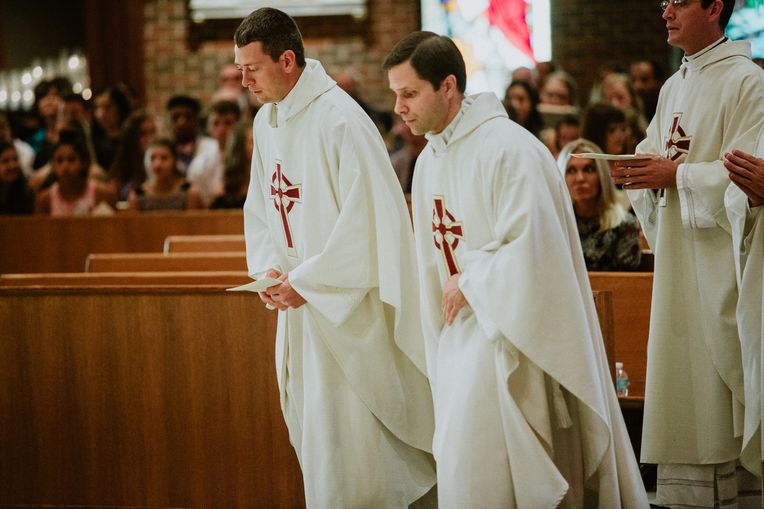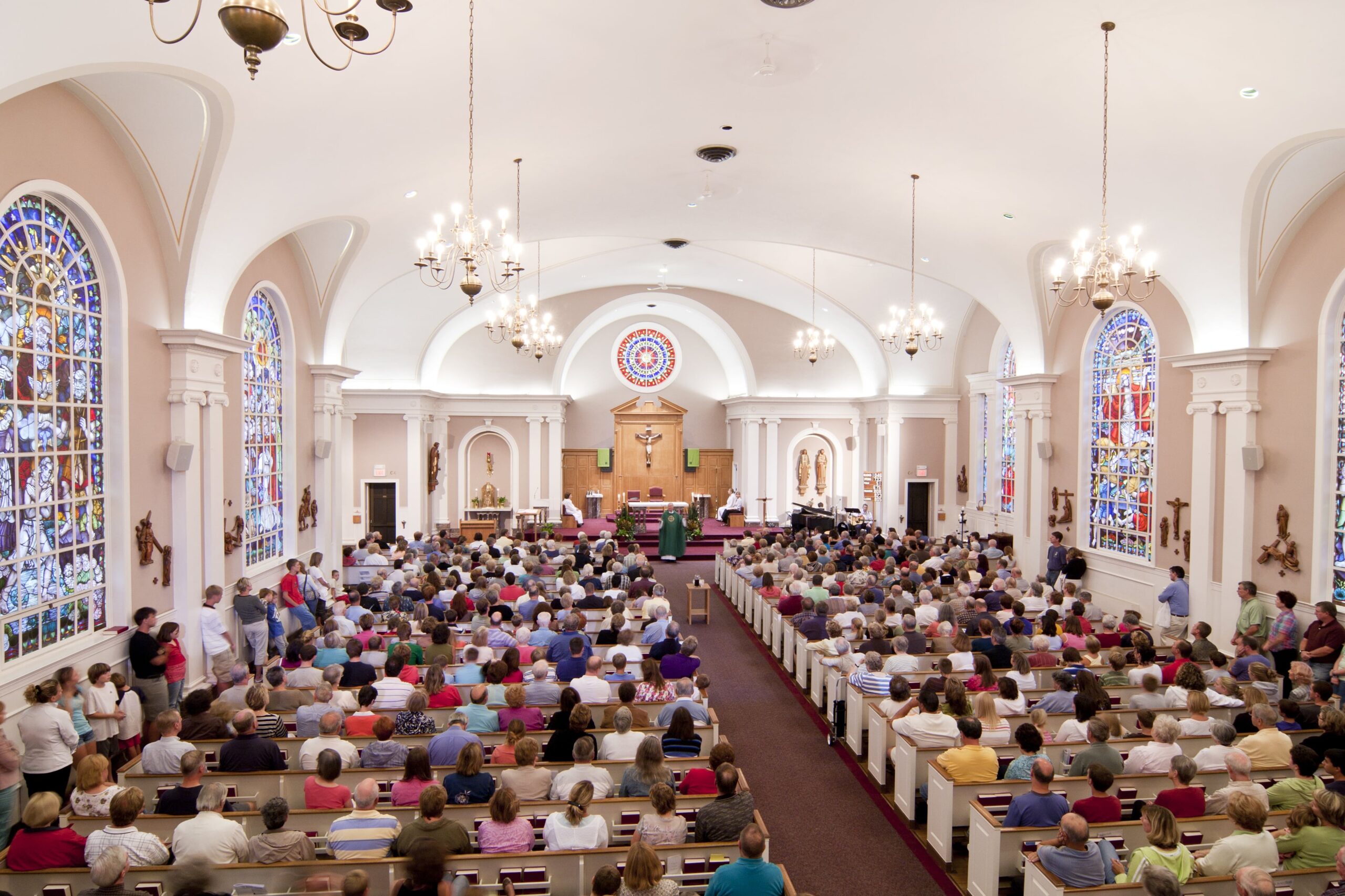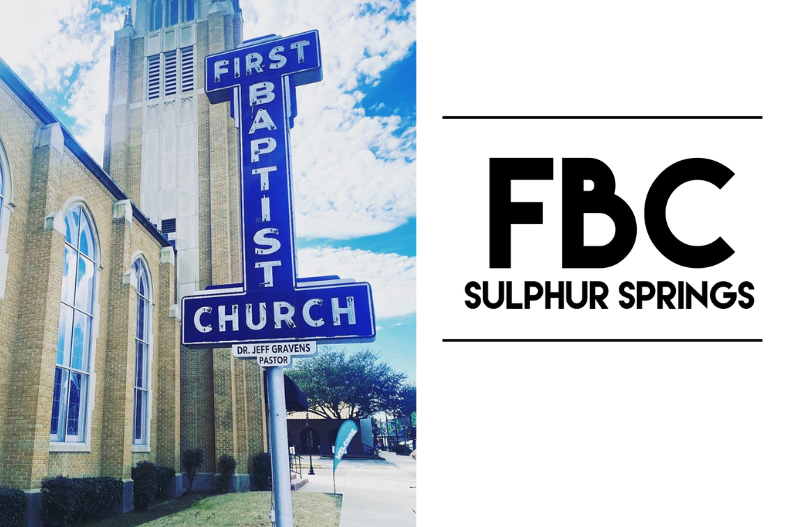“Ask Father…” This response has been all too familiar in Catholic parishes for decades. It has been a convenient response that worked in an age of Christendom. Our parishes were the place we went to pray. Our pastor made the decisions and offered the sacraments. Over time we allowed ourselves to think that all we had to do as parishioners is to show up for Mass, even though the Church taught differently. But circumstances have changed. New societal norms and family structure, along with priests asked to pastor multiple parishes, have forced us to think differently about our role as laity and about who is responsible for our personal faith journey.
Fortunately, many parishes have formed leadership teams who collaborate with the pastor and staff and are empowered to act in their areas of expertise. “Father” has entrusted the operation of the parish to capable lay leaders, so when it comes to “asking Father”, it is a meaningful strategic or pastoral question. Vibrant parishes have also taken the next step, making it a priority to invite and encourage new people to become small group and ministry leaders, a constant influx of new lay leaders. Now Pope Francis is adding dramatic new emphasis to the role of laypeople.
“The Pope, the Bishops and other ordained ministers are not the only evangelizers in the Church. They “know that they were not instituted by Christ to take on by themselves the full weight of the Church’s saving mission to the world”[19]. Every Christian, by virtue of Baptism, is a disciple-missionary “To the extent that he met with the love of God in Christ Jesus”” Pope Francis – Predicate Evangelium
Pope Francis issued a new Vatican constitution, Predicate Evangelium (Preach the Gospel) which takes effect on June 5. In the new constitution, the pope makes a significant change to the highest level managerial roles in the Church. Leadership roles traditionally held by Cardinals will be open to all baptized laypersons, including women.
Phyllis Zagano, senior research associate and adjunct professor of religion at Hofstra University, explains: “With the new constitution, the offices, which used to be called congregations, councils, and commissions, will now be called dicasteries. The heads of these offices can now be any of the faithful: A bishop, priest, deacon, married woman, married man, single layperson, or cardinal could be appointed. The important point is that Pope Francis wants the most competent people running these offices.”
The changes are another move toward synodality, emphasizing that the Church is one communal body that must engage in listening and discerning Christ through the voice of the people. It’s also a wake-up call to all of us that we are responsible members of our parishes. Placing all the responsibility with the pastor reinforces a tendency to clericalism. Which then reinforces the abdication of our own responsibility.
Pope Francis writes: “This life of communion gives the Church the face of synodality ; that is, a Church of mutual listening Where everyone has something to learn. Faithful people, Episcopal College, Bishop of Rome: one listening to the other, and all listening to the Holy Spirit, the Spirit of truth (cf. Jn 14:17 ), in order to know what He is saying to the Churches (cf. Rev 2, 7)”. This synodality of the Church, then, will be understood as the “walking together of the Flock of God on the paths of history to meet Christ the Lord”. It is a question of the mission of the Church, of that communion which is for the mission and is itself missionary.”
We can pray that this change does indeed allow for the most competent and faithful people to engage in the management of the church. The “leadership team” model may be reflected throughout the hierarchy of the management of the Church, while also emphasizing the important ministry and spiritual formation and pastoring provided by our ordained leaders. At a minimum, this change emphasizes to our pastor priests the need to identify a faithful leadership team who bring a range of competency and viewpoints to managing our parishes. And it suggests we emphasize the need to invite leaders of groups who can connect with others at all levels and phases of their faith journey.
That last phrase deserves a little more explanation. Our small group leaders at a parish level don’t all have to be deeply formed Catholics. Some may be early in their journey. They should be committed to a relationship with the parish. And to learning more about the faith, so they can inspire others into exploring that relationship. These are the people who can understand and connect with others who are searching in their faith.
Clearly, a lay leader of a Vatican dicastery must have the faith, experience, and knowledge to operate in the sphere of the curia. The leadership team a pastor chooses should be comprised of a mix of faithful, knowledgeable Catholics and of people who represent the broader community. To welcome and serve the community outside our parish we must understand the community. It’s up to us to be Christ for each other. So, rather than “Ask Father…” we need to ask ourselves.
Terry Poplava is a multi-disciplined executive with extensive sales, product marketing, strategy and leadership experience in supporting faith organizations. Terry’s professional experience includes organizational leadership, corporate development and growth, consulting with and training church leaders, and leading strategic and priority planning for churches and dioceses. He currently serves on the advisory board for the National Shrine of Our Lady of La Leche in St. Augustine FL, as cantor at St. Andrew parish in Myrtle Beach, SC. and recently as Chairman of the Finance Council at St. Mary the Virgin Mother parish in Hartsville, SC.




